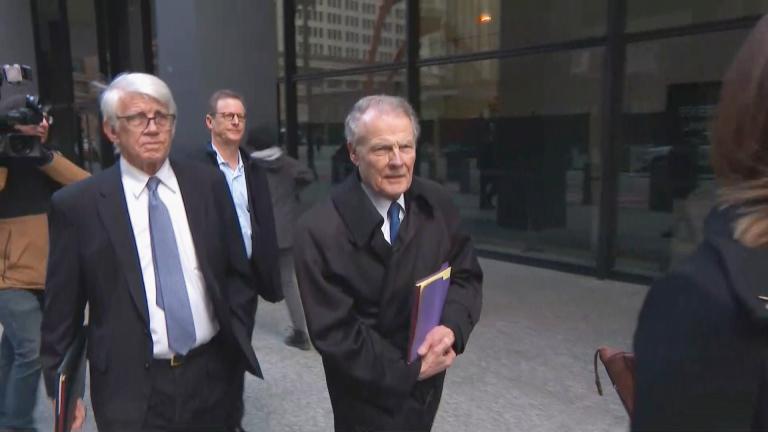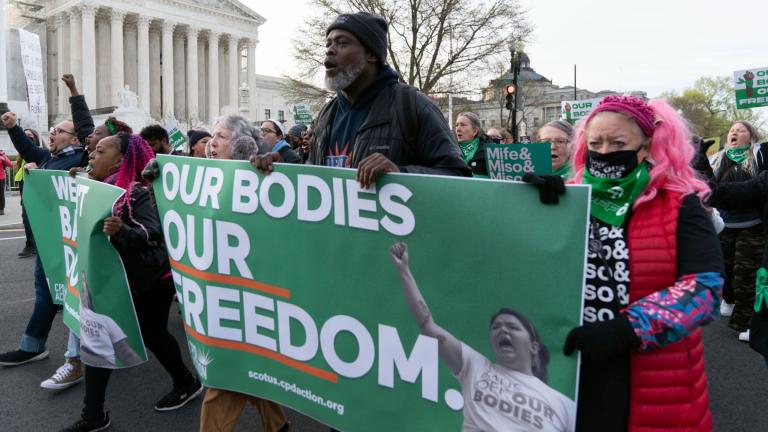The U.S. Supreme Court has ruled states cannot prevent same-sex couples from marrying. The 5-4 majority opinion, written by Justice Anthony Kennedy, says states must license and recognize same-sex marriages based on the 14th Amendment's Due Process and Equal Protection Clauses. But the Supreme Court's conservative dissenters angrily accused their colleagues of overstepping their roles by legalizing same-sex marriage nationwide saying they are ignoring the Constitution by striking down gay marriage bans in 14 states.
Three former Supreme Court clerks take a closer look at the historic decision as well as the court's final three rulings of the session on the use of a specific drug during executions, states using redistricting commissions to map congressional districts, limits to the EPA's initiative to control toxic emissions from power plants and the court's decision to reconsider the Affirmative Action case at the University of Texas at Austin. Joining us are Carolyn Shapiro, who serves as the State of Illinois Solicitor General in the Office of the Attorney General and served as a law clerk for Justice Stephen G. Breyer from 1996-1997; Michael A. Scodro, a partner at Jenner & Block who served as a clerk to Justice Sandra Day O’Connor from 1998-1999 and as Illinois Solicitor General; and Andrew DeVooght, who served as a clerk for Justice William H. Rehnquist from 2002-2003.
Same-Sex Marriage
The U.S. Supreme Court ruled in Obergefell v. Hodges that the Constitution guarantees the right to same-sex marriage. The historic 5-4 ruling was delivered on Friday, June 26.

Lethal Injection
SCOTUS decided in Glossip v. Gross that states can use a drug that has been linked to previous botched executions. On Monday, June 29, the court ruled 5-4.

Redistricting
In Arizona State Legislature v. Arizona Independent redistricting Commission, it was found that voters have the authority to establish congressional districts in a 5-4 ruling on Monday, June 29.

Power Plant Emissions
On Monday, June 29, the Supreme Court ruled 5-4 the Environmental Protection Agency violated the Clean Air Act by failing to conduct a cost-benefit analysis before limiting emissions of mercury and other toxic pollutants emitted from power plants.









